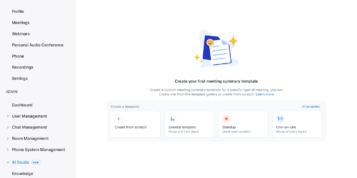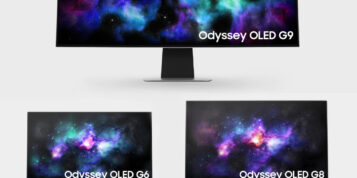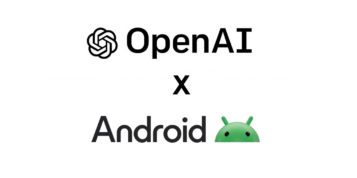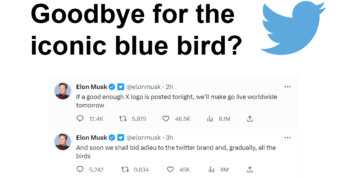Google has teamed up with Twitter and the Associated Press (AP) to create a new tool called AP Election Buzz, which was released just in time for Super Tuesday yesterday.
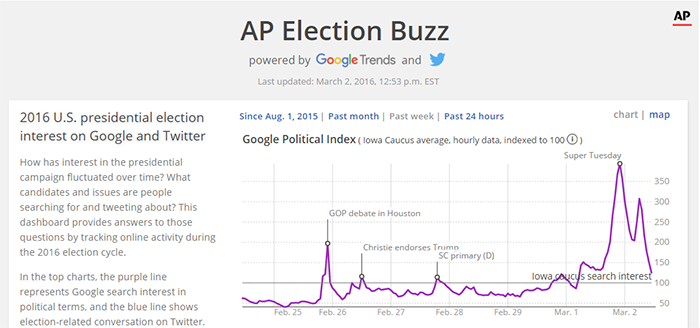
This tool provides a convenient snapshot of voter interest and visually highlights changes in Google search interest and Twitter chatter about election issues and candidates over time. The display can best be described as a politically-oriented Google Trends with Twitter data added to the mix.
A purple line is used in the charts to show the Google search interest in various political terms, while a blue line indicates the levels of conversation about election-related terms on Twitter.
Google’s data is updated hourly and is drawn from its Political Index, which measures searchers’ interest in a weighted list of election topics such as candidates, current events, and policy issues.
The Twitter data is gleaned from an analysis of tweets and hashtags that contain the names of candidates and other election-related terms.
The charts clearly demonstrate how particular events can trigger spikes in online conversation or searches.
Users of AP Election Buzz will be able to see at a glance the ways in which big events like caucuses and debates have shaped interest in the election. This data can be displayed over the past 24 hours, past week, past month, or since a beginning point of August 1, 2015.
Can the tool predict the election?
Not surprisingly, Donald Trump has dominated the Twitter conversation and Google searches during this election cycle, although that does not necessarily mean he has the election locked up.
While social media can paint a picture of the topics people are discussing, talking about a candidate does not mean that a person will vote for him or her – it could even mean the opposite. Supporters and detractors alike tend to talk a lot about controversial figures like Trump.
On the day of the Iowa Caucus, for example, 42.2 percent of the conversation about the caucus on Facebook focused on Bernie Sanders, with Hillary Clinton garnering just 12.4 percent. However, the caucus ultimately ended in a near tie with Clinton slightly edging out Sanders for the victory.
On the other hand, Twitter conversation did turn out to be an accurate predictor of the Iowa caucus. However, it is worth noting that Twitter conversation does not seem to line up with Google searches. For example, Wired reports that Twitter conversation over the past 24 hours has been dominated by environmental and energy issues, but health care was Google’s most-searched election issue.
Even though people’s online behavior might not be able to accurately predict the outcome of the election, this tool does provide a huge amount of insight into the level of public interest in various topics so that candidates can focus on the issues that matter most to voters.
